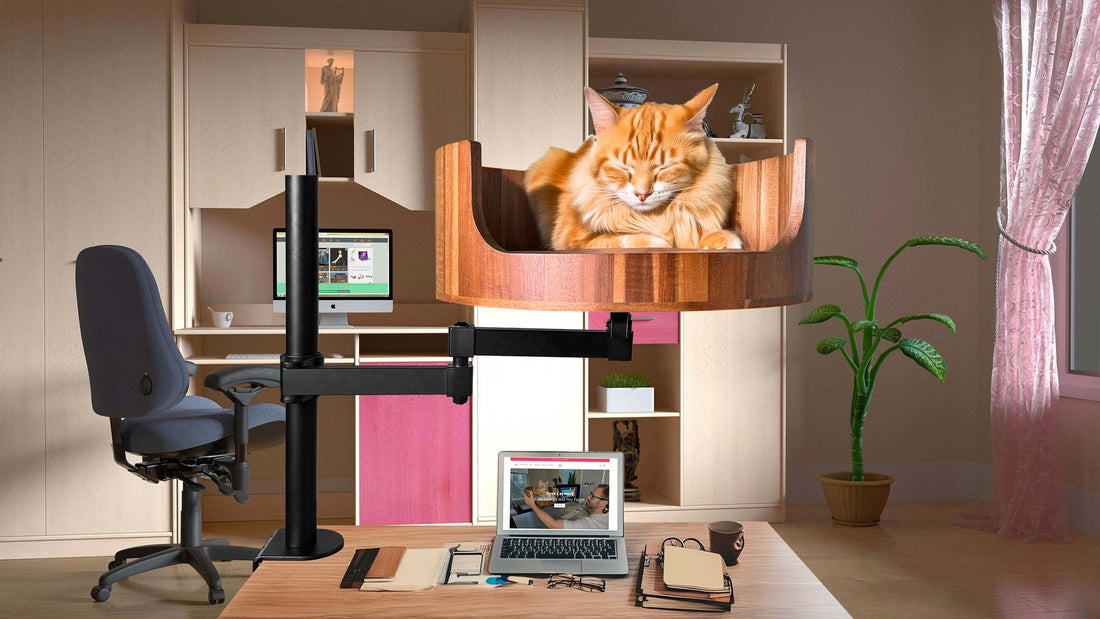
Why Does My Cat Not Like to Be Held? Understanding Felines
Share
Cats are known for their independent and sometimes aloof nature, but have you ever wondered why your furry feline friend squirms and protests when you try to hold them? Understanding the behavior of cats when it comes to physical contact can help strengthen the bond between you and your pet. In this article, we will delve into the reasons why cats may not enjoy being held, as well as provide tips on how to better understand and interact with your beloved kitty.
From body language cues to past experiences, there are a variety of factors that can contribute to a cat's aversion to being held. Some cats may simply prefer to be in control of their surroundings and feel vulnerable when confined in a human's arms. Others may have had negative experiences in the past that make them wary of physical contact. By recognizing these factors and learning how to respect your cat's boundaries, you can create a more positive and trusting relationship with your pet. So, if you've ever found yourself wondering why your cat is not a fan of being held, keep reading to gain valuable insights into the complex world of feline behavior.
1. Cats may not enjoy being held due to their independent nature and sensitivity to touch.
2. Understanding your cat's body language and cues can help determine if they are comfortable being held.
3. Respect your cat's boundaries and signals to build trust and a positive relationship.
4. Providing a comfortable and secure environment, such as a desk cat nest, can help your cat feel safe and content.
5. Every cat is unique, so it's important to observe and respect your feline friend's preferences when it comes to physical affection.
Understanding Feline Behavior
Cats are known for their independent nature and unique behaviors. While some cats enjoy being held and cuddled, others prefer to have their own space. Understanding feline behavior is crucial in recognizing why some cats do not like to be held. Cats have a strong sense of personal space and may become stressed or anxious when held against their will. It is essential to respect their boundaries and allow them to interact on their own terms.
Importance of Positive Associations
Creating a positive association with being held is key in helping cats feel more comfortable with human interaction. By offering treats, praise, and gentle handling during cuddle sessions, cats can learn to associate being held with positive experiences. Consistency and patience are key when attempting to change a cat's behavior towards being held. Building trust and strengthening the bond with your cat can lead to a more enjoyable experience for both parties.
Physical and Emotional Factors
Various physical and emotional factors can contribute to a cat's dislike of being held. Cats may have underlying health issues that cause discomfort or pain when being picked up. Additionally, past experiences, trauma, or lack of socialization can influence a cat's behavior towards being held. It is essential to rule out any medical issues and address any potential emotional concerns to help your cat feel more at ease with being held.
Alternatives to Holding Your Cat
If your cat does not enjoy being held, there are alternative ways to show affection and bond with your furry friend. Providing interactive playtime, grooming sessions, or simply spending quality time in each other's presence can help strengthen your relationship with your cat. Understanding and respecting your cat's preferences is crucial in maintaining a harmonious and fulfilling relationship. Remember that every cat is unique and may have different preferences when it comes to physical affection.
Frequently Asked Questions
Why does my cat not like to be held?
There could be several reasons why your cat does not like to be held. Some cats are naturally more independent and prefer their space. It could also be because of past experiences or discomfort with being restrained. Additionally, some breeds of cats are known to be less fond of physical contact.
Will the Desk Cat Nest help my cat become more comfortable with being held?
While the Desk Cat Nest provides a cozy and secure space for your cat to relax, it may not necessarily change their preferences when it comes to being held. However, by offering a safe and comforting environment, it could help in building trust and improving your cat's overall comfort with physical contact over time.
How can I make my cat feel more comfortable being held?
It's important to approach your cat with patience and respect their boundaries. Start by offering treats and gentle pets to positively reinforce the experience of being held. Gradually increase the duration of holding them and ensure that they have an escape route if they feel overwhelmed. Consistency and positive reinforcement are key in helping your cat feel more comfortable being held.
Is the Desk Cat Nest easy to clean?
Yes, the Desk Cat Nest is designed with easy-to-clean materials. The cushioned insert can be removed and machine washed, while the outer covering can be wiped down with a damp cloth. Keeping the Desk Cat Nest clean is essential to ensure your cat's comfort and well-being.
In conclusion, if your cat does not enjoy being held, providing a comfortable and secure resting place like the Desk Cat Bed can help alleviate their stress and anxiety. The unique design of the bed allows cats to have their own personal space within arm's reach, giving them a sense of security and independence. By offering a cozy and inviting spot for your cat to relax, they may become more comfortable with being held and bonding with you. Ultimately, the Desk Cat Bed is a valuable choice for improving your cat's well-being and strengthening your relationship with them.



















































